Top 5 Shows that Exemplify the Shift in Nerd Culture
What is a nerd? Depending on who you are talking to, you are bound to come across a variety of definitions and explanations. Don’t bother asking Google- the third link on the page is to the New England Reptile Distributors. Wikipedia, on the other hand, has a very interesting definition:
“A nerd (adjective: nerdy) is a person, typically described as being overly intellectual, obsessive, or socially impaired… Additionally, many nerds are described as being shy, quirky, and unattractive, and may have difficulty participating in, or even following, sports.”
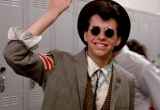
This sounds entirely plausible- if we lived in the 1980s. If we look back to the decade of Madonna’s relevance, nerds were indeed exemplified by their low social standing, bad taste in clothing, and general unattractiveness. This is the John Hughes effect, as while the nerd stereotype was alive long before The Breakfast Club and Pretty in Pink, the characters portrayed by Anthony Michael Hall and Jon Cryer (who never left the stereotype) basically codified all it meant to be a geek. At the end of Pretty in Pink, Molly Ringwald was supposed to end up with Cryer’s Duckie, but the ending was changed because it wasn’t thought the be ‘believable’. They were right; Duckie could do much better than an irate ginger.
However, this is film. Consistent and deep character development across the space of 90 odd minutes is a difficult task, and thus surely it must have been easier to fully realise the humanity of the nerd character through the medium of television. The longevity of the television series not only accepts, but also encourages, the breaking of stereotypes in order to prolong the show’s run. Looking back at the 1980s though, any character who self-identified as a nerd was placed into the same predictable category exemplified by the nerd codifier himself, Urkel. Note that I mentioned self-identification. It is very easy to label Alex P. Keaton (Family Ties) as a nerd from our current viewpoint, as the nature of the term has become broader and more positive. In the context of the program, Alex was never explicitly labelled as a nerd except as an insult, which was quickly deflected and rejected by the main character. The label was uniformly negative.
Have things changed since then? I believe so. Nerds are not wholly popular characters, but they are now human characters. It is much harder to watch a modern program and identify a character solely by the term ‘nerd’, predominantly because it is such a broad term. Do you mean that they are intelligent? Do they enjoy science fiction? Are they into Game of Thrones? In addition to this, none of the above factors would immediately connect to the 1980s stereotype, due to the growing social acceptance of typical nerd fare such as attending and enjoying comic-cons.
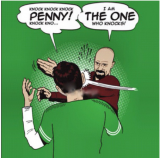
Naturally though, I must provide evidence of this change. Thus, I have identified 5 programs that I believe best exemplify the new status of nerds on television, each for different reasons. You will soon see that The Big Bang Theory is not amongst the chosen, largely because it conforms to the 1980s stereotype almost exclusively. Making the nerd characters the focus point of the program doesn’t mean that you are not still projecting a damaging stereotype. Shows like The Big Bang Theory, while occasionally funny, perpetuate the link between intelligence and low social standing; they don’t reflect how society has changed to value concepts associated with nerd culture. The difference between them and the shows below is that where Big Bang seeks to rehabilitate, the others celebrate.
This is not an exhaustive list, rather it is a representation of the broad ways in which nerd culture is being represented in modern television. Shows such as Black Books, NCIS, The IT Crowd and Arrested Development all represent this trend as well, but I thought it best to focus on other programming that we may not immediately associate with nerd culture.
5. Parks and Recreation: Everyone has a nerdy side.
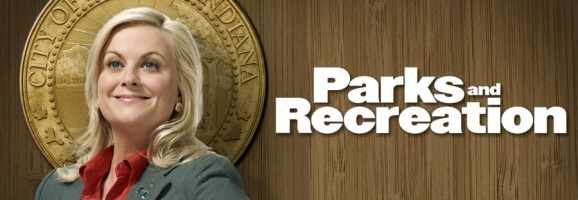
Parks and Rec is, full disclosure, one of my favourite programs. Not only does it have a great ratio of female to male characters, it is consistently funny and satirical without losing a sense of heart and sentimentality. The reason why it exists on this particular list, however, is because every single character has an element of the nerd. As a spin-off from The Office, Parks and Rec could have easily conformed to typical stereotypes and played the nerd-jock-popular interactions for laughs. Instead, each character is given an obsession or interest that strays into the nerd realm. Ben, the good looking and fairly popular deuteragonist, has a penchant for dressing up as Batman; main character and Pollyanna expy Leslie has a fangirl-esque obsession with Joe Biden; and the trendy, fashion savvy Donna greatly enjoys watching and discussing Game of Thrones.
I would have been happy enough with the presence of these values, but the show takes it even further by presenting these various interests and obsessions as positive constructs. Donna makes no effort to hide her love for GOT, and it is indeed the character that has no knowledge of the program, Ann, who is portrayed as out of touch. Parks and Rec shows how nerd culture is no longer something to be hidden away in the back of the closet with lad mags or that one copy of Cosmo you swear you bought ironically. The show make proud to be what I am- what else can I ask of a program?
4. Psych: Nerds can be laughed with, not at.

Psych centres on the antics of Shawn Spencer, a 20 something with an eidetic super memory who pretends to be psychic in order to solve murders with the Santa Barbara police department. He does so with the somewhat reluctant help of his childhood best friend Burton ‘Gus’ Guster, an African-American pharmaceutical representative. The strong friendship between the two leads sets this show apart from its sister show The Mentalist, as the audience truly believes that these two have been friends for many years. Both leads can be identified as nerds, as in addition to their freakish knowledge of 1980s popular culture, Shawn and Gus both are experts in niche areas; Gus with state area codes and drug manufacturing, and Shawn with his impressive knowledge of algebra and Twin Peaks.
The show earns its place on this list due to how the two leads are the primary source of the show’s comedy, without being the butt of the joke. Shawn and Gus do often make mistakes and goofs, but most of the time they are the ones in control of the humour. Instead of portraying their love for niche programming as something to be laughed at, it is those who are not in on the joke who look foolish. Psych draws the audience to feel that they are not only a part of a culture, but that the culture is dominant and powerful- a position that nerds and geeks have historically been denied.
3. Death in Paradise: Intelligence is sexy.
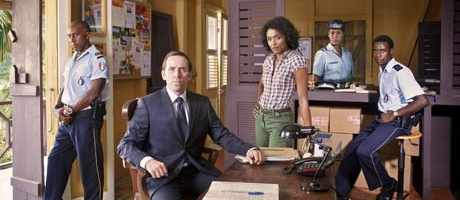
This is the least well-known program on the list, being a British police procedural set on the fiction island of Sainte Marie. Muc of the humour is derived from the differences between high-strung British DI Richard Poole and the more laid back staff of Honore station, including romantic interest Detective Sergeant Camille Bordey. Poole is played by Ben Miller, who, while not unattractive, doesn’t command the same squeals of approval as the Pattinsons and Timerlakes of the world. His intelligence and dogged persistence, however, endear him to both the audience and Camille.
Too many times in television is the nerd presented as an extremely attractive man or woman with glasses, a Clark Kent-ish figure who is unrealistically rejected or dismissed by women because of his interests. In Death in Paradise, Poole is not ignored, rather he is first recognised because of his geeky traits. His ability to solve complex crimes is what initially draws Camille to respect, and then admire, her new boss. Sure, the program does make fun of his social inabilities, but the point is that they do not preclude attractiveness.
2. Primeval: Women can be both attractive and nerdy.
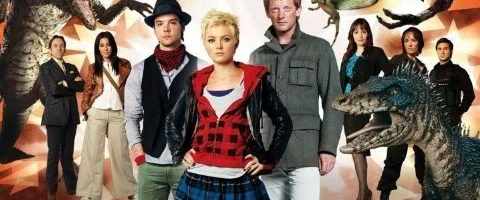
Too often in lists such as these, authors focus predominantly on male characters and how the nerd has transformed notions of masculinity. While this is an important construct (see number 3), it is equally as important to consider the reconciliation of femininity with intelligence and popular culture obsession. Programs that stress the valorisation of nerd culture often do so by showing the geek protagonist as attractive to beautiful women in his own right. In the small number of shows with geeky females, they often have to be made over, or wear revealing clothing in order to be noticed.
Primeval is one of the few exceptions to this rule, where there is not invisible line drawn between intelligence and attractiveness. The show focuses on the appearance of doorways to the prehistoric era, and the team that is created to stop any dinosaurs or other creatures from coming through. The team includes Abby Maitland, Jess Parker and Sarah Page, each of whom are intelligent women with niche interests that align with elements of nerd culture. All of the women are attractive in different ways, but the key theme of the program in this vein is that nerd culture is divorced from physical appearance. Plus, dinosaurs.
1. Spaced: Everything. Just… Everything.
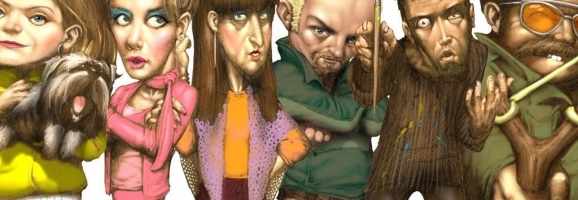
There is no way that I could write this list without including this fantastic sitcom, created and produced by Edgar Wright, written by and starring Simon Pegg and Jessica Hynes, with Nick Frost in a supporting role. All you need to do as add in David Tennant and Benedict Cumberbatch and you’d have the perfect popular culture/nerd mash-up. Spaced is a sitcom that focuses on two platonic friends (Pegg and Hynes) who are forced to pretend they are a couple to rent an apartment. The show could have veered into general Friends territory with the will-they-won’t-they connection between the two leads, but the excellent writing and development of secondary characters thankfully precludes this.
At first glance, major nerd stereotypes are enforced. Characters are socially awkward, obsessed with Star Wars (But definitely not the new trilogy) and one even works at a comic book store for a character named Bilbo. It really shouldn’t be on this list for those reasons alone. However, Spaced is brilliant because it is created by and for geeks. Unlike Big Bang, which is created by the same man who writes Two and a Half Men, Spaced feels like a love letter to nerd culture. It recognises its pitfalls and deservedly makes fun of them, but at no point is the entirety of the nerd persona negatively represented. I see Big Bang as a popular kid making fun of my love for Star Wars. Spaced is my best mate telling me I look like Jar Jar.
Speaking plainly, the role of the nerd in popular culture has changed. It has become more broad, more inclusive and more mainstream. This does, of course, come with its own set of issues and concerns, but on the whole it is a positive construct. It feels good to watch television and see characters like myself, with my interests, not being the butt of the joke. May this trend live long and prosper. (Sorry.)
What do you think? Leave a comment.










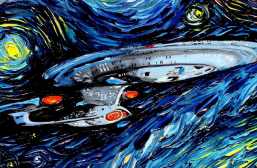
I see you including Spaced there 😛 I approve.
I had to marathon it the other day….for science.
You had me at this sentence: “You will soon see that The Big Bang Theory is not amongst the chosen, largely because it conforms to the 1980s stereotype almost exclusively.”
And then you put Spaced at the top. YES.
Can’t go past a little Spaced to brighten my day:)
The thing is, I quite like the Big Bang Theory. it’s warm and cuddly in a classically sitcom sort of way, but it really isn’t the best representation of nerds. This runs deeper than conforming to the 1980s standards. As much as we might be laughing with the characters sometimes, at other times we are very much laughing at them and their nerdy tendencies. Unlike the other shows, I don’t think anyone ever watches the big bang theory and thinks “I wish I was like them,” or “wow, they’re just like me!” It could have been genuinely insightful, were it not the brainchild of Chuck Lorre.
Yes, the whole ‘laughing with/laughing at’ ratio is completely off for me. The show does have its moments, indeed some of the episodes I would say are downright great. Unfortunately….Chuck Lorre.
This is a really well thought out article and I love your assertion of Spaced>Big Bang! I also really enjoyed your identifying the nerdiness in Parks & Rec: It’s such an implicitly yet satisfyingly nerdy show. Grand stuff!
Absolutely! I think it is such a broadly marketed show, but includes the nerd persona without making it a stereotype.
I’ve always preferred the term geek, never understood why Nerds have been socially unacceptable, they have an interest in something and probably hold a lot of knowledge and understanding about their subject.
Rather be a nerd than some “cool” air head.
I hear you. Perhaps the term came up because it was a way of belittling those who are different?
As an Aussie I obviously lean towards British titles when it comes to favoritism. Death in Paradise is no exception. I love it. The characters are great (particularly DI Richard Poole, played by Ben Miller), he is exemplary.
It’s great to find another Death In Paradise fan! The show is just fantastic.
Nice list! Parks & Rec is one of my favorite shows, and I think it’s great how you broke down some of the nerdism in the show. And, even if it didn’t make the top 5 due to its immediate association with nerd culture, I love that you gave a shout out to The IT Crowd. That is one amazingly hilarious, well-written show. As is Arrested Development. Man, so many great shows about and for us nerds.
It is a good time to be a nerd. Yes, I agonised over not including IT Crowd, but I thought it best to maybe put less well known/less nerd associated shows on the list. To make up for it, I marathoned season 3 last night!
Haha. That’s great. I think I’ll have to marathon the series again as well. 🙂
Though I’ll quickly add that here in America The IT Crowd doesn’t seem to be as well-known (thus not as appreciated) as I think the show deserves to be. A lot of the praise here goes to The Big Bang Theory (my opinion withheld on that one…)
Very true- they have similar premises, with the characterisations and humour are vastly different. Love The IT Crowd.
So glad to see shows like Spaced and Primeval on here over more widely recognised and usually much more problematic shows like The Big Bang Theory and Doctor Who. I really like your choices and reasoning.
Yes, I thought about Doctor Who, but you are right when you say it is problematic. It definitely does colorise nerd culture, but its reputation is quite niche, even today. I was looking for shows with nerdy elements that were perhaps more hidden (like Parks and Rec) or programs that deserve more viewership (like Spaced).
The fact that superhero movies are the biggest blockbusters around today is another example of the nerd culture seeping into the mainsteam
I never thought of that- very true. On television though, looking at the superhero type shows (Arrow, Smallville), i wonder whether that is actually a by produt of the mainstreaming of nerd culture, or whether producers just saw SHIRTLESS GUYS and greenlit.
You make a very strong argument. I wonder if we will eventually be able to evolve through other ethnic and gender stereotypes the permeate Hollywood. Hope so!
This is so insightful and witty. I especially loved your take on gender within the ‘nerd image’ in TV and the media in general – so interesting, and so true! You had me laughing at my computer screen like a weirdo, whilst still delivering such exciting ideas – and, dinosaurs!
LOL, this is great!
This is awesome. I really need to try watch Parks and Rec, I have read that its very good, even though I haven’t really heard people talk about it AT ALL outside of the interwebs. Spaced also sounds interesting. Thanks for recommendations!
You said Big Bang theory was occasionally funny. When? I missed it.
I don’t think Parks and Recreation was about nerds; just dorks and “quirky” people.